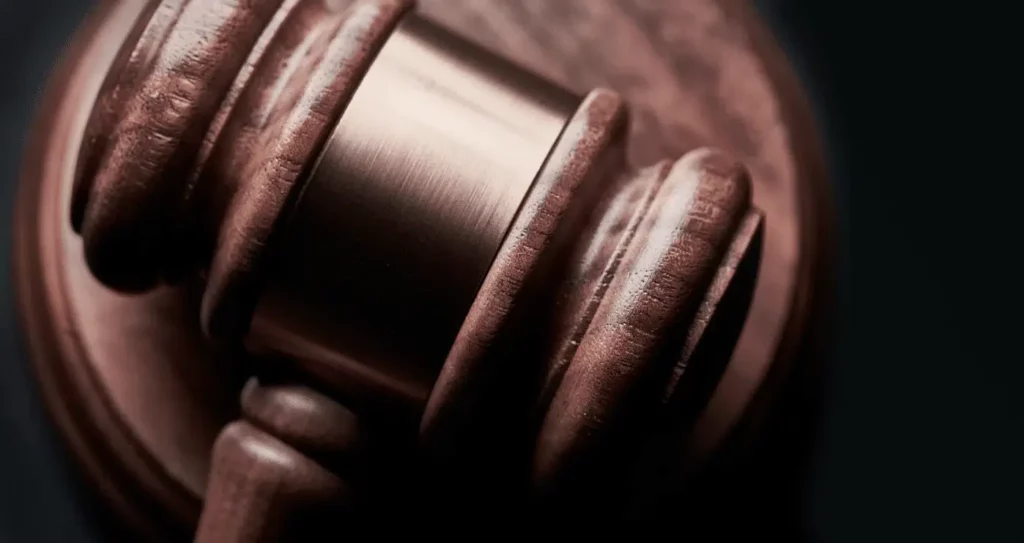
Flat fee structure means no surprise costs.
Custom solutions to protect your legacy.
7 generations in Denton, Texas.
Small Estate Affidavit Attorney
When a loved one dies without a will, decisions about how their assets are distributed are sometimes made by a probate court. The probate process may be necessary if the deceased had significant assets or a complex financial situation.
However, because it can be expensive, probate proceedings often aren’t practical for those who leave behind only a small estate. In some cases, the cost of probate would be greater than the value of the estate itself.
If you’re considering filing a smaller state affidavit or just need legal advice on how to handle an estate after someone dies, the estate planning attorneys at Hunter Sargent are here for you. Call our office to book a consultation today.

What Is a Small Estate Affidavit?
A small estate affidavit is a legal document that makes it possible for a deceased person’s estate to be transferred directly to the beneficiaries and completely avoid the process of probate. It can only be used if the value of the estate is below a certain amount.
Because there are so many requirements to qualify for a small estate affidavit, these documents are only used in very limited circumstances. They’re especially useful for lower-income families who want to quickly and affordably resolve the estate of a departed loved one.
Qualifications for Using Small Estate Affidavit
Texas estates code requires several qualifications to create a small estate affidavit. These are some of the primary ones:
- The deceased person didn’t leave a will
- The deceased left behind $75,000 or less in personal property (excluding their home and other exempt property)
- The deceased’s home is the only real property they owned
- The deceased’s total assets are greater than their total debts
- The deceased doesn’t have a personal representative, and there’s no pending application for a personal representative
- All legal heirs must agree on and sign the small estate affidavit
However, it’s important to note that eligibility can be extremely complex, and different courts or localities might impose additional restrictions. Our estate planning attorneys can look closely at your situation and tell you if you can legally use a small estate affidavit to distribute the decedent’s estate. If you don’t qualify, we can help you understand the options available to you.
Steps in the Small Estate Affidavit Procedure
It takes several steps to successfully file a small estate affidavit. Texas law makes the process somewhat complex, but our attorneys can guide you through it. When you work with us, we can guide you through these steps and can often complete them for you. Wondering how to file a small estate affidavit? Here’s a quick look at the steps involved.
Gather the Documents and Evidence You Need
If possible, locate a copy of the deceased’s death certificate and a copy of the deed to their home. If you can’t find these easily, we can help.
When you file a small estate affidavit, you also need to file an affidavit of heirship, a form with a detailed family history. Make sure you know the name, date of birth, and date of death (if applicable) of the deceased’s children and current and former spouses. The form must be completed by someone who will not benefit from the estate.
The affidavit will also require you to provide a detailed list of all the deceased’s outstanding debts and assets. Make sure you can verify the balances in any bank accounts the deceased owned (as well as the balance remaining on credit cards, loans, or other debts).
Complete the Form and Notarize It
Fill out the small estate affidavit form, making sure it’s complete and accurate. You will need to have the form signed in front of a notary public, and in most cases, two “disinterested witnesses” (people who don’t stand to gain anything from the estate) will have to sign as well.
Pay the Fee and File With the Court
You’ll need to pay a filing fee of a few hundred dollars to file the affidavit with the court. In Texas, counties charge their own filing fees, and they usually are between $200 and $400. You should file at the clerk’s office in the county where the deceased’s home is located. If the court approves, you can then distribute estate assets.
Requirements to File for a Small Estate Affidavit
Under Texas law, the only people who may file a small estate affidavit are the decedent’s heirs as defined under Texas intestacy law. Intestacy law is the law governing the handling of estates when someone dies without leaving a will.
Intestacy laws establish a hierarchy of who has claim over the decedent’s estate. Typically, the surviving spouse and children are first on the list.
Even though more distant relatives can usually inherit property, a small estate affidavit can only be used to transfer ownership of the deceased’s home to a surviving spouse and/or minor children who were living with the decedent at the time of death.
Cost of the Small Estate Affidavit Procedure
In Texas, small estate affidavits must be filed in the county where the deceased’s home is located. Different counties charge different filing fees, but they are generally a few hundred dollars ($200 to $400). Keep in mind that if you file an affidavit improperly and the court doesn’t approve it, the filing fee won’t be refunded.
Considering Filing a Small Estate Affidavit?
A small estate affidavit can make things easier when it comes to distributing the estate of a deceased loved one. However, as you’ve seen, the process of filling out the affidavit itself isn’t necessarily easy.
Even if you were very close to your loved one, you might not know the names and birth dates of former spouses. You might have trouble obtaining a copy of the deceased’s death certificate. And many people struggle with trying to locate all debts and assets.
At Hunter Sargent, we routinely help clients like you successfully fill out and file small estate affidavits. We understand that distributing your loved one’s estate can give you a sense of peace and closure, and we’re committed to helping you achieve that closure.
If you’re ready to file a small estate affidavit or just want to understand your options, we’re here for you. Call us or reach out online to book your appointment today.
FAQs
Do I Need an Attorney to Prepare a Small Estate Affidavit?
Legally speaking, you may fill out and file a small estate affidavit if you wish. However, if you aren’t already familiar with small estate affidavits and how they work, you may not include all relevant information when filing. That can lead to the affidavit being declined. An attorney can help you make sure your affidavit is filed correctly the first time.
What Is a Small Estate Affidavit, and When Should I Use It?
A small estate affidavit is a document that allows a deceased person’s assets to be distributed to heirs without going through probate. To qualify, the deceased person must have left no more than $75,000 in personal property and only one piece of real estate.
You should consider using one when the small size of the estate makes it financially impractical to go through probate.
What Documents Do I Need to File a Small Estate Affidavit?
In order to file a Texas small estate affidavit, you need a few documents: a copy of the deceased’s death certificate, a list of the deceased’s assets and debts, and an affidavit of heirship (a document confirming you are a legal heir to the deceased’s estate).
How Long Does a Small Estate Affidavit Take?
In Texas, you must wait 30 days after the decedent’s death to file. Once you have filed with the court, the turnaround time can vary by county. Once we know which county you need to file in, we’ll be able to give you an estimate of how long the court will take to approve it.

Schedule a meeting now To Start
The best time to plan your legacy was 10 years ago. The next best time is today. Everyone needs estate planning – the good news is it’s never too early and if you’re reading this, it’s not too late.


